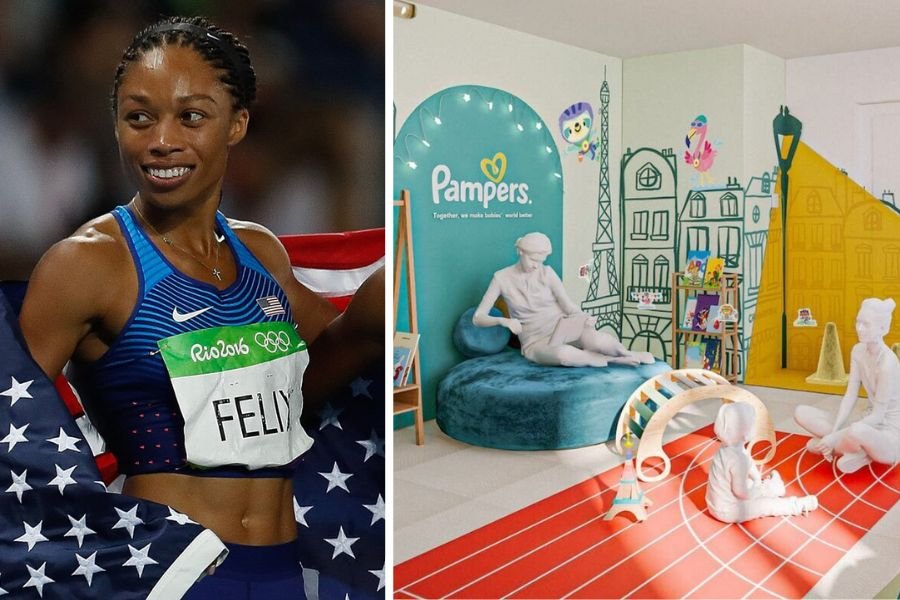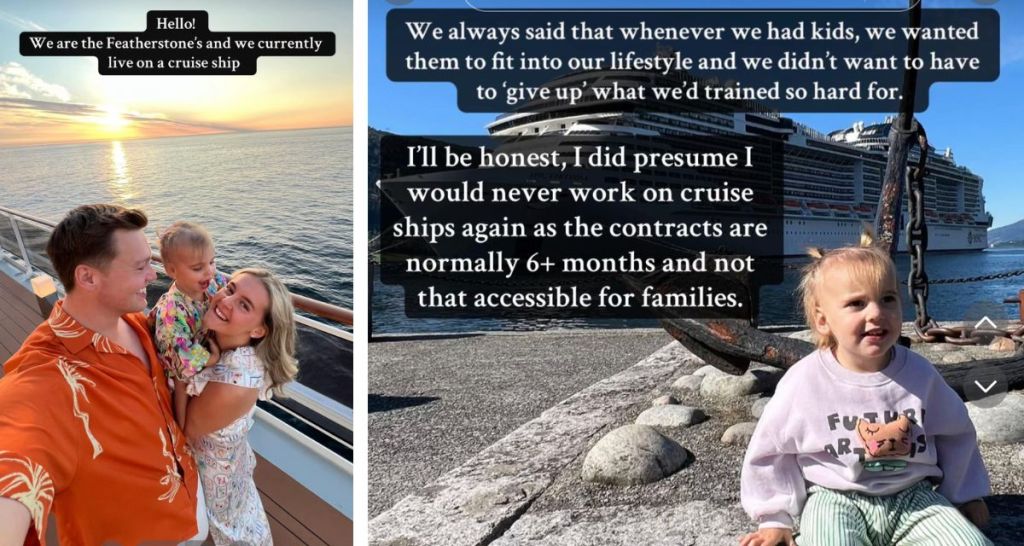For much of Olympic history, women were excluded from competing. Women weren’t allowed to compete in the Ancient Olympic games at all, and the first women to compete in the modern Olympics in 1900 only made up 2% of the total athletes.
That percentage has slowly increased in the decades since. The 2012 Olympics were the first games to have women competing in every sport, and the 2024 Paris games—for the first time in Olympic history—has a 50/50 ratio of male and female athletes.
That gender parity makes a difference, not only for athletic opportunity but for how the games themselves are managed. More women competing means more mothers with babies competing, and thanks to some key advocates with experience in that area, the Olympic Committee has made two big moves at the Paris games to support those athletes.
Take breastfeeding, for example. If an elite athlete is breastfeeding a baby, there are all kinds of logistics that can make competing at the Olympics a challenge. But with proper support, it doesn’t have to prohibit them from competing in top form.
One way the Olympic organizers are making competition more doable for moms is by offering breastfeeding athletes and their families hotel rooms near the Olympic village. Children have always been banned from the Olympic village with very few exceptions, and the dorm-type rooms with single, twin-sized beds are not exactly conducive to breastfeeding families’ needs anyway.
According to La Leche League International, breastfeeding athletes can thank fellow Olympian Clarisse Agbegnenou for the the hotel accommodations, The French Judo champion who became a mother in June of 2022 advocated for the accommodations, saying, “To put things in perspective, I’ve decided to breastfeed my daughter until she’s weaned. She hasn’t yet, so I’m following her. I’ve made sure that I feel good physically, because of course there’s an element of tiredness. But as a mother who needs to be very present for my daughter, I asked for the opportunity to have her with me during the Olympics.”
Agbegnenou nursed her baby, Athena, while training for—and subsequently winning—her sixth world championship title. Clearly breastfeeding itself isn’t holding her back in her sport, but not having proper accommodations would make competing in the Olympics unnecessarily harder.
French Olympic Committee secretary general Astrid Guyart told reporters of the hotel accommodations, “It’s unprecedented and it’s something we want to make permanent, so it’s not a one-off because it’s the Olympics in Paris.”
Thanks to the advocacy of another Olympian mom Allyson Felix—who also happens to be the most decorated track athlete in history—the Paris Olympics also has its first nursery. Felix, who is now retired from competition, approached the International Olympic Committee and her partner Pampers about supporting athletes who are competing while parenting babies and young children.
“I just knew how difficult it was to compete at the top level after I had my daughter, and some practical things were really hard,” Felix told CBS Mornings. “And so when I became on the athletes Commission of the IOC I really wanted to be that voice for athlete moms and just take away one less thing for them to worry about in the pressure of competition.”
The nursery, supported by Procter & Gamble, sits in the heart of the Olympic village and includes a space to breastfeed, a play area and access to Pampers products. Felix said it gives parent athletes a place to step away from the noise and have some private time with their children.
Check out one Olympic family making use of the nursery:
In the past, athletes were often made to feel that becoming a mother meant the end of their sports career, but Felix pointed out that that was just a narrative that was being placed on them. Accommodations like the nursery for athletes marks a new chapter in a new narrative.
“I think it really tells women that you can choose motherhood and also be at the top of your game and not have to miss a beat,” said Felix, adding, “It’s really a starting out place. I would love to grow this even more.”
Here’s to the athletes blazing the trail for themselves and those who’ve come after them to ensure that moms don’t have to make false choices between motherhood and being at the top of their sport.




























